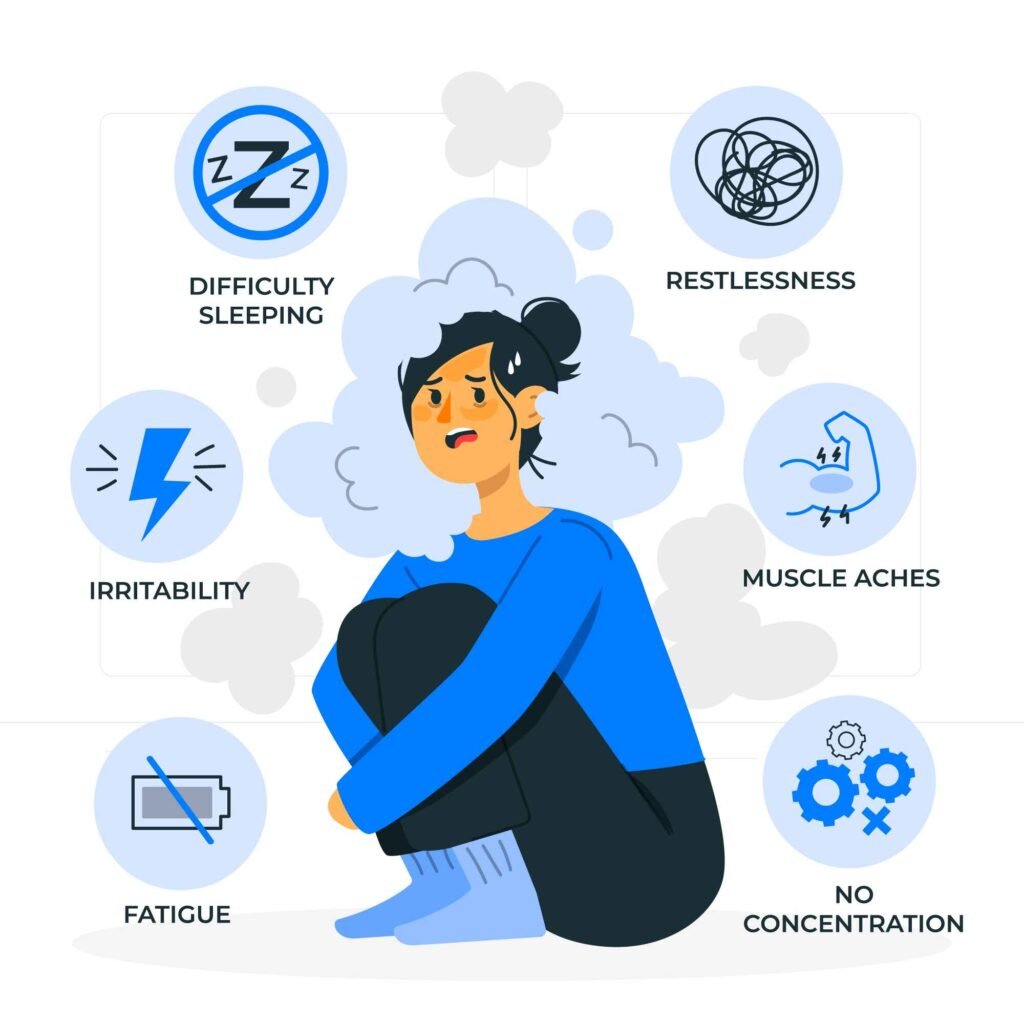
Habits to Boost Mental Resilience: Techniques to build resilience against stress and anxiety
In today’s world, stress and anxiety are common experiences for many of us. The good news is that building mental resilience can help you navigate these challenges with greater ease. Resilience is your ability to bounce back from difficult situations, and it’s not a trait that some are born with and others aren’t—it’s something you can build over time through daily habits. In this blog post, we’ll explore a variety of daily habits and techniques to help you strengthen your mental resilience against stress and anxiety.
1. Embrace a Growth Mindset
The first step toward mental resilience is adopting a growth mindset. This mindset, coined by psychologist Carol Dweck, involves viewing challenges and failures as opportunities to grow rather than signs of defeat. When you face difficulties, remind yourself that every obstacle is a chance to learn something new about yourself and the world around you. By seeing problems as stepping stones, you can build resilience over time.
Actionable Tip: Next time you face a setback, instead of asking “Why me?” ask “What can I learn from this?”
2. Practice Daily Gratitude
Gratitude is one of the most powerful tools for boosting mental resilience. When you focus on what’s going right in your life, you shift your mind away from stress and anxiety. Studies show that people who regularly practice gratitude experience lower levels of stress and are better able to manage life’s challenges.
Actionable Tip: Start a gratitude journal. Each night, write down three things you’re grateful for. It could be as simple as having a good meal or receiving a kind message from a friend.
3. Strengthen Your Social Connections
One of the strongest buffers against stress and anxiety is having a solid support network. Whether it’s family, friends, or colleagues, these connections provide emotional support when life gets tough. In fact, research shows that social relationships are a key factor in building resilience. Having people to lean on can make the difference between feeling overwhelmed and feeling capable of overcoming challenges.
Actionable Tip: Make it a habit to check in with a friend or loved one each day. Even a short text or call can help strengthen these relationships.
4. Prioritize Sleep
Sleep plays a crucial role in regulating your emotions and improving your ability to handle stress. When you’re well-rested, you’re more likely to face challenges with a clear mind and balanced emotions. On the flip side, lack of sleep can make it harder to cope with stress and increases the likelihood of anxiety.
Actionable Tip: Develop a relaxing bedtime routine. This could include dimming the lights, reading a book, or practicing deep breathing exercises before bed to signal to your body that it’s time to wind down.
5. Get Moving: Exercise Regularly
Physical activity isn’t just good for your body; it’s one of the most effective ways to improve your mental health and build resilience. Exercise has been shown to reduce anxiety, improve mood, and increase your ability to cope with stress. When you push your physical limits, you train your brain to become more adaptable and resilient.
Actionable Tip: Aim for at least 30 minutes of physical activity each day. Whether it’s a walk, a yoga class, or a workout session, find something you enjoy that gets your body moving.
6. Practice Mindfulness and Meditation
Mindfulness and meditation are powerful tools for building resilience. They help you stay present and manage your reaction to stressful situations. By practicing mindfulness, you can reduce the “fight-or-flight” response that often accompanies stress and anxiety. Over time, regular meditation can help you develop a calmer, more resilient mindset.
Actionable Tip: Start with just five minutes of meditation each day. Focus on your breathing and allow yourself to become aware of your thoughts without judgment.
7. Embrace Flexibility and Adaptability
Life is full of unexpected changes, and the ability to adapt to these changes is a key component of resilience. Resilient people are flexible in their thinking and are willing to adjust their goals and methods as circumstances change. By embracing change rather than resisting it, you’ll find it easier to manage stress and navigate difficult situations.
Actionable Tip: When faced with a change or unexpected event, take a moment to reflect on the new opportunities it presents. Try to see change as a doorway to growth rather than a setback.
8. Develop Problem-Solving Skills
Resilience often involves the ability to solve problems effectively. When you encounter challenges, having a plan of action can help reduce feelings of stress and anxiety. By focusing on what you can control and taking proactive steps to address problems, you’ll feel more empowered and less overwhelmed.
Actionable Tip: Next time you face a problem, break it down into smaller steps. Focus on solving one part at a time rather than feeling paralyzed by the entire situation.
9. Cultivate Optimism
Staying positive during tough times is easier said than done, but maintaining an optimistic outlook is a key part of resilience. It doesn’t mean ignoring the challenges you face, but rather acknowledging them while keeping faith that things will improve. Optimistic people tend to bounce back from setbacks faster and are more likely to find solutions to their problems.
Actionable Tip: Each day, write down one positive thing that happened, no matter how small. This will help train your mind to focus on the good, even when times are tough.
10. Try New Things
Challenging yourself to step outside your comfort zone is another effective way to build resilience. When you try something new, whether it’s a hobby, a skill, or a different way of thinking, you teach your brain how to handle uncertainty and discomfort. Over time, this helps you become more flexible and resilient in the face of life’s challenges.
Actionable Tip: Commit to trying one new thing each week. It could be something as simple as cooking a new recipe or taking a different route to work. The key is to get comfortable with being uncomfortable.
11. Practice Self-Compassion
Being kind to yourself is essential for resilience. When things don’t go as planned, it’s easy to be hard on yourself. However, self-compassion helps you recover from setbacks more quickly and encourages a growth-oriented mindset. Treat yourself with the same kindness and understanding you would offer a friend in a difficult situation.
Actionable Tip: When you make a mistake or face a setback, take a moment to practice self-compassion. Remind yourself that it’s okay to make mistakes and that every failure is an opportunity to learn.
12. Set Small, Achievable Goals
Resilience is built by tackling challenges head-on, but that doesn’t mean you have to take on the world in one go. By setting small, achievable goals, you can make steady progress and build confidence in your ability to handle difficult situations. Each small win contributes to your overall sense of resilience.
Actionable Tip: Break your larger goals into smaller, manageable steps. Celebrate each step as a victory, no matter how small, to keep your motivation high.
Conclusion: Building Resilience One Day at a Time
Building mental resilience takes time and effort, but the rewards are well worth it. By incorporating these daily habits into your life, you’ll develop the strength and flexibility needed to handle stress and anxiety more effectively. Remember, resilience isn’t about never facing challenges—it’s about learning to thrive in the face of them.
With consistent practice, you can strengthen your ability to bounce back from life’s difficulties, turning obstacles into opportunities for growth. Start today with one or two of these habits and watch your resilience—and your ability to manage stress—grow.
This blog post integrates actionable tips and a variety of resilience-building techniques to appeal to readers looking for practical, effective ways to cope with stress and anxiety.



